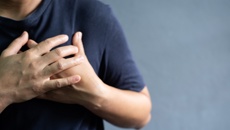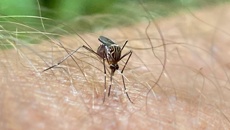
Medical students may be turned on to support our healthcare system, during an Omicron cases surge.
Hospital patients with Covid-19 have been increasing over the past week, with 40 hospitalisations on Tuesday.
The NZ Resident Doctors Association has been working with District Health Boards to put a plan around resources, with concerns hospitals are already “plagued” with short-staffing.
National Secretary Dr Deborah Powell said New Zealand hospitals have too much of a reliance on international doctors, which are currently lacking because of border restrictions.
She said in July last year, hospitals were 150 budgeted full-time employment resident doctors short, and the Christmas period had been a “nightmare” with the number of vacancies and people having to fill in.
Powell said they were “bracing themselves” for the Omicron surge, and were working to maximise what doctor resources they had, and keep staff and patients safe.
That included potentially employing final-year medical students, also called trainee interns, so they could take on more responsibility.
“They won’t be registered medical practitioners but they are still well informed...they know how to assess a patient and then they can report back to the doctor on duty,” Powell said.
A Ministry of Health spokesperson said there was an opportunity for students to provide support in the outbreak response.
“The Ministry supports the work that tertiary education providers are undertaking to enable and support students to expand roles outside of usual student placements to support Aotearoa’s COVID-19 response.”
University of Otago’s Pro-Vice-Chancellor Division of Health Sciences, Professor Paul Brunton, said they didn’t currently have any students actively involved, but were getting prepared so they could assist if needed.
“If they do become involved, unless mandated by the Government, any expanded roles undertaken by students to deliver health services outside of usual clinical attachments will be on a voluntary basis.”
A University of Auckland spokesperson said it had detailed plans in place in conjunction with DHBs, the Ministry of Health, and students in case there was a surge.
They recognised the pandemic had put an increased burden on all students.
“We have been supporting them, including our medical students, as best we can.”
Powell said the wellbeing of doctors was critically important.
“You can’t run on empty in a situation like this,
“We’re making sure that our less experienced doctors would be utilised best up on the wards, where we will have a lot of patients, but it’s a safer environment than front of house.”
She said it was still an “active area of discussion” of how the final-year students would work but safety measures would include sticking to rosters, not working any more than safe hours and staying with house officers.
Take your Radio, Podcasts and Music with you







